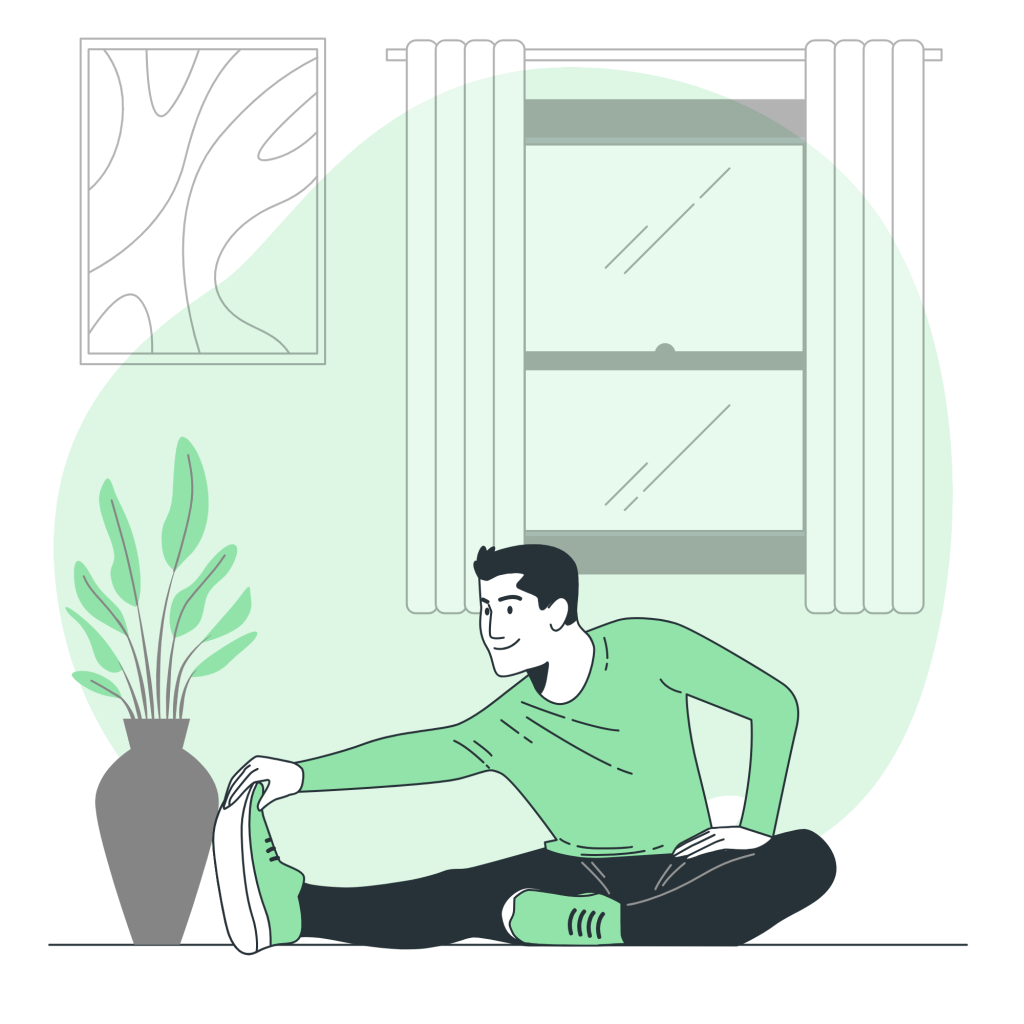
Below is the list of resources and guides on how excersize can help you
Exercise is a powerful tool for improving mental health. Regular physical activity releases endorphins, often referred to as “feel-good” hormones, which can reduce feelings of anxiety and depression. It also helps to improve sleep, increase self-esteem, and reduce stress. Engaging in exercise can provide a sense of accomplishment and distraction from negative thoughts. Overall, maintaining an active lifestyle contributes significantly to better mental well-being.
| Article Title | Link |
|---|---|
| “10 Daily Habits for Better Mental Health” | Read Article |
| “The Power of Routine: How Structure Can Improve Mental Health” | Read Article |
| “The Relationship Between Exercise and Mental Health” | Read Article |
| “5 Mindfulness Techniques to Reduce Stress and Anxiety” | Read Article |
| “Finding Joy in Movement: How to Enjoy Exercise” | Read Article |
| “Setting Realistic Fitness Goals for Improved Mental Health” | Read Article |
| “The Importance of Self-Compassion in Mental Health” | Read Article |
| “When to Seek Professional Help for Mental Health Concerns” | Read Article |
Simple Guide for Improving Mental Health through Daily Routine and Exercise
1. Start Small:
- Begin by making small, manageable changes to your daily routine. Focus on one or two habits at a time to avoid feeling overwhelmed.
2. Establish a Routine:
- Create a daily schedule that includes regular wake-up and bedtime hours, meal times, and dedicated periods for work, relaxation, and self-care. Consistency can provide a sense of stability and control.
3. Prioritize Sleep:
- Aim for 7-9 hours of quality sleep each night. Establish a relaxing bedtime routine, such as reading or taking a warm bath, to signal to your body that it’s time to wind down.
4. Practice Mindfulness:
- Incorporate mindfulness techniques into your daily routine to reduce stress and promote mental well-being. Try simple practices like deep breathing, meditation, or mindful walking.
5. Stay Active:
- Incorporate physical activity into your daily routine, even if it’s just a short walk or gentle stretching. Exercise releases endorphins, which can improve mood and reduce symptoms of anxiety and depression.
6. Choose Activities You Enjoy:
- Find physical activities that you genuinely enjoy, whether it’s dancing, cycling, swimming, or yoga. Doing activities you love increases the likelihood of sticking with them long term.
7. Set Realistic Goals:
- Set achievable goals for yourself, both in terms of daily activities and exercise. Start with small, attainable targets, and gradually increase the intensity or duration as you build confidence and stamina.
8. Be Kind to Yourself:
- Practice self-compassion and avoid self-criticism. Remember that progress takes time, and setbacks are a natural part of the journey. Celebrate your successes, no matter how small.
9. Seek Support:
- Don’t hesitate to reach out for support from friends, family, or mental health professionals if you’re struggling. You don’t have to face challenges alone, and asking for help is a sign of strength.
10. Monitor Your Progress:
- Keep track of your daily activities, exercise, and mood in a journal or planner. Reflect on what’s working well and what could be improved, and adjust your routine accordingly.
11. Be Patient:
- Remember that change takes time, and it’s okay to progress at your own pace. Be patient with yourself and trust that small steps forward are still progress.
12. Celebrate Your Successes:
- Acknowledge and celebrate your achievements along the way, no matter how small. Every positive change you make contributes to your overall well-being.
These articles cover various aspects of improving mental health through daily routines and exercises, including the benefits of routine, the relationship between exercise and mental health, mindfulness techniques, setting realistic goals, and seeking professional help when needed. You can click on the links to access each article and learn more.
